Photographs: Divya Nair/Rediff.com Divya Nair
A start-up by three young Indians is making it easier to order in your daily groceries. This is their story.
Enterprising young Mumbaiites Karan Mehrotra (27), Rashi Choudhary (28) and Amit Naik (27) have launched LocalBanya.com, an interesting initiative they hope will revolutionise the way India orders everyday groceries.
You can choose from over 2,000 discounted items on the website, leave your address and phone number and get your order delivered to your doorstep. What sets them apart from the actual local banya is that practically every product available is discounted.
Besides, delivery takes place within 24 hours of placing the order at no extra charge.
Currently LocalBanya operates within the confines of Mumbai and claims to have a database of over 950 registered users, of which 550 are unique customers.
And it's been just a little over a month since they started operations.Karan Mehrotra, a computer engineer from the Rajiv Gandhi Institute of Technology, Mumbai is the brain behind the venture and looks after the logistics.
His friend and now business associate Amit Naik -- also an engineer -- went on to pursue his MBA in operations from the Indian Institute of Management-Lucknow, before taking over as their strategy and brand-building partner.
Rashi Choudhary, who holds an MBA in services management from the SP Jain Institute of Management Studies, Mumbai, supervises customer and employee relations.
In the following pages, the three entrepreneurs tell us just how they hope to make a success of their venture.
Please click NEXT to continue reading...
'We ended up investing every paisa we have saved'
Image: Localbanya employees at work in their Mumbai warehousePhotographs: Courtesy LocalBanya.com
What inspired you to start an online supermarket?
Karan: I was already involved in the field of commerce. We have been distributors for brands like Hindustan Lever and run a family business. But I wanted to do something on my own -- something that is new and appeals to everyone. I had discussed the idea with Amit and after meeting Rashi, we were convinced that we should not wait any longer.
Rashi: I had always faced trouble shopping for groceries. Every time I telephoned our local banya, he would end up taking the wrong order or send us something other than what we ordered. Even when supermarkets emerged, I had little motivation to move out of the house, especially during the summers and monsoons. That's why when Karan discussed the idea of an online supermarket with me, I jumped at it. I knew exactly why it would exact figures because this was our first time too. We were not sure how it would pull off. But ever since the idea came up, I could think of nothing else but launching it at the earliest.
Amit: A few angel investors and venture capitalists were willing to fund us. But then, this was our first venture and we wanted to give it our 100 per cent. It was a difficult decision, but eventually we ended up investing every paisa we have saved. I have given up the idea of buying a new bike.
'We are doing every bit to keep our customers and employees happy'
Image: Employees at work at Localbanya's Mumbai warehousePhotographs: Courtesy LocalBanya.com
Since LocalBanya is online and requires the Internet, doesn't that limit your consumers?
Karan: The USP of online supermarkets is to make things available at the have been very grave so far.
For instance, our website mentions that orders have to be above Rs 500. But we are facing minor technical glitches, due to which orders less than Rs 500 were also accepted by the site. Since it was not the fault of the customers, we delivered the orders without any complaints.
But there have been good experiences too. In fact, one of the customers we delivered to in Mazgaon was so impressed with our prompt service that she asked our delivery boy to wait while she introduced the idea to her neighbours, who took note of our website.
Since you are not earning profits, how do you plan to pay your employees? How do you manage your finances?
Karan: When we started the company, we had set some money aside for operations -- we care about our employees and hence salary won't be a problem. As we expand our operations, things will smoothen out.
Rashi: Frankly, it's been a tough year for me. My pocket's been almost empty. But then, I had helped with my father's business for a year. I never asked him for money then. So I spoke to him and asked him to give me Rs 500 a week, to take care of food and travel expenses.
Amit: We are doing every bit to keep our customers and employees happy. It is definitely pinching our pockets. But that only nudges us to work harder. Because all of us have invested hard-earned money and knowing that drives our commitment.
'Our customers do not sleep, neither do we'
Image: Delivery boys line up outside the LocalBanya office in MumbaiPhotographs: Courtesy LocalBanya.com
Your model requires the Internet. How do you see it competing against the regular banya who delivers in less than 20 minutes and keeps credit for a month or more?
Amit: Our three value propositions are convenience, price and variety. Banyas sell at MRP, we discount heavily.
Karan: It's just a month since we've begun and we already have so many loyal customers, who order more than once a week. So there are people who are willing to switch to new ideas for convenience.
Rashi: Also, we ensure that customers who've placed an order with us will remember the experience and recommend us to others.
A lot of superstores offer larger discounts and even deliver goods at home. Many local banyas are now transforming their shops into walk-in stores and moulding their businesses to meet competition from superstores, even offering discounts ranging from five per cent upward. Why do you think consumers will log on to your site?
Amit: Because they can shop from the comfort of their homes/offices, 24/7. Our customers do not sleep, neither do we. Besides, superstores require you to be physically present during business hours. With our model, we just need to take care of the logistics.
Rashi: I used to regularly order groceries over the phone. However, there always used to be some confusion or miscommunication due to poor reception, external noises etc. At the end of the day, the local banya can only do so much for you. In the age of Internet banking and e-commerce, LocalBanya is a relatively convenient and safer bet. You can order from anywhere, anytime and get it delivered the way you want.
E-commerce seems to be booming, but a lot of people are predicting the bubble will burst. How do you foresee the scenario?
Amit: Sure it will burst, but the fundamentally strong businesses will survive. Our fundamentals are strong because we choose to grow at an adaptable rate, and are constantly cutting operational and logistics costs. We do not believe in big marketing spends, we believe that our strong base of satisfied customers will drive sales by being loyal and spreading the word.
What were the mistakes you made during the planning and strategy stage that you rectified along the way?
Karan: Right from designing the web page to the launch stage, we've made so many mistakes. For example, there were coordination problems; we did not have a large range of products when we started. Proper planning had to be backed with proper execution. Next, we decided to ask customers to suggest products they'd like added to the site and we have tried to cater to most of them. Nobody's perfect. We've done some things right. As for the rest, we can say we are evolving (laughs) at every stage.
Rashi: Since all of us do our own research and homework, we are always suggesting ideas to each other. But the good part is, every idea has to be approved by the other two partners.
Amit: One of us is always trying to pull the other's idea down. But that really helps us stay grounded when we are excited. The idea has to be really good enough for all of us to agree to it.
'We don't want to compromise on quality in our greed to expand'
Image: A customer receives an order from LocalBanya.comPhotographs: Divya Nair/Rediff.com
What are the mistakes you think young entrepreneurs tend to make while floating a new venture and how can they avoid them?
Amit: Overconfidence and over-optimism. Those were two things that worked against me in my first venture. The solution is patience, not to forget research and adequate homework.
Karan: In the case of Sangam, they launched the online store in the '90s-- a time when e-commerce was at a nascent stage. Secondly, they could not live up to the promises they made. While longterm vision is certainly a plus, entrepreneurship is also about the success of implementation.
What are your plans for the future?
Karan: We want to increase the average number of deliveries per day from 40 to at least 100. At the same time, we do not want to compromise on our quality in our greed to expand. So, we will take at least three to six months to achieve that. Besides, we want to add as many brands as possible, so that people will not miss out on their favourite products.
Rashi: I believe entrepreneurship comes with a responsibility to empower. I enjoy training the young girls and boys. Some of the delivery boys and staff have a basic education, but cannot speak fluent English. So my aim is also to help them learn to communicate in English and operate the computer.
Amit: We are working on improving the website so it functions better. I am also discussing a few ideas that will help us build the brand locally. We will be using Facebook and Twitter as usual, because it does not cost anything and the response is tremendous. We want LocalBanya to be a household name in Mumbai.
Any tips for budding entrepreneurs?
Rashi: Never underestimate the work you will have to do after the company is launched. You may not get a single client or you may be crowded with work. You have to be prepared for both.
Amit: Do not stop doing your homework after launching the company. No matter how busy you are, it is very important to spend time analysing how other companies -- especially your competitors -- are growing. You have to evaluate your growth and understand what you are doing right; at the same time, realise where you can improve and work towards it.
Karan: Read a lot. Talk to people. Weigh the pros and cons. But once you are convinced of an idea, do not be afraid of trying it out. Behind every entrepreneur is someone who risked something!

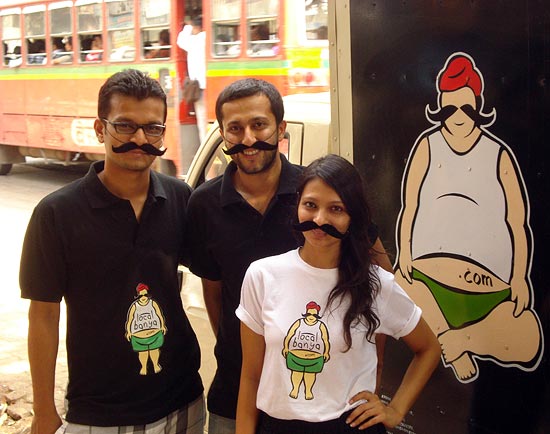
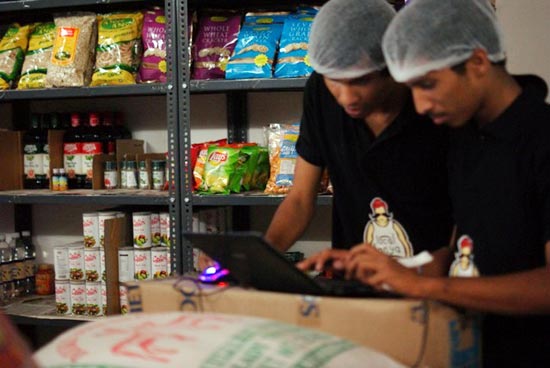
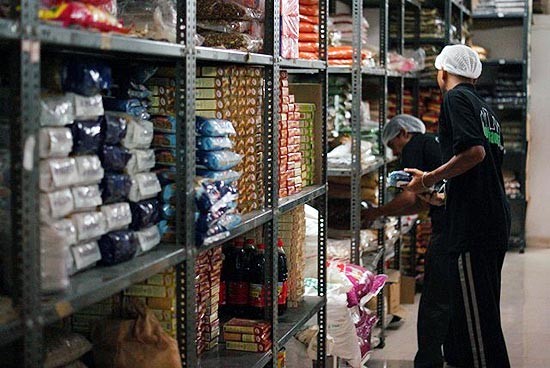
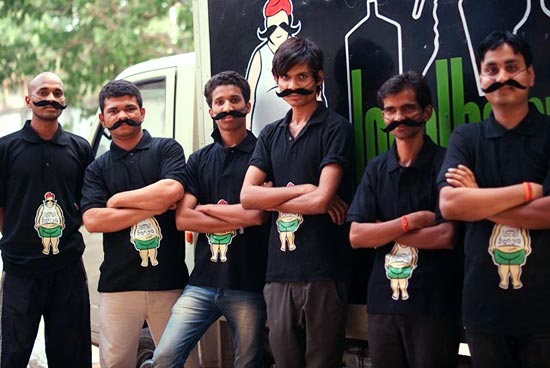
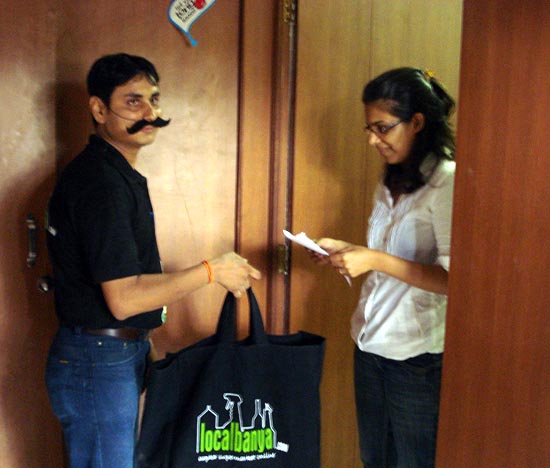
Comment
article